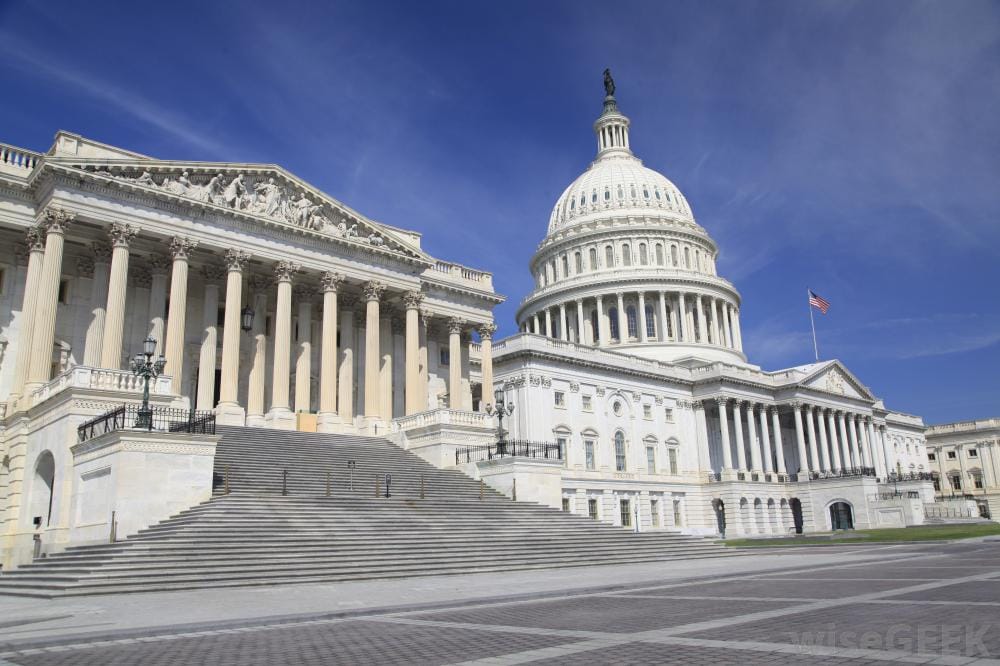Congress returned from its annual August recess on Monday, September 5, 2017. In the first week, President Trump and lawmakers reached agreement on a debt-limit and Hurricane Harvey aid package. The plan will extend the U.S. debt limit and funds the government through December 15. In the following week, the House of Representatives passed a $1.2 trillion Omnibus spending bill.
The Senate continues to work on its appropriation legislation.
Congress still has outstanding deadlines on September 30 for reauthorizing the Federal Aviation Administration (FAA) and the Children’s Health Insurance Program. The Senate only has 8 days left in session currently scheduled before September 30, and the House only has about 4 work days currently scheduled.
Along with these quickly approaching deadlines, tax reform and infrastructure legislation are also on the legislative agenda this fall, which will mean a very busy fall legislative session.
House Appropriations Committee Approve FY 2018 CJS Appropriations Bill
The House Appropriations Committee approved the fiscal year 2018 Commerce, Justice, Science (CJS) Appropriations bill. The bill funds the Department of Commerce and Justice, the National Aeronautics and Space Administration (NASA), the National Science Foundation (NSF) and other related agencies. The bill contains $54 billion in total discretionary funding, which would be a decrease of $2.6 billion below fiscal year 2017 but would be $4.8 billion above the President’s budget request. The bill increases funding for national security, including cybercrime, counter-terrorism and espionage. The bill also increases funding for federal law enforcement to crack down on illegal immigration, violent crime, gangs and opioid trafficking.
The bill also includes $2.2 billion for various state and local law enforcement assistance grant programs. The bill would eliminate Office of Justice Programs juvenile justice funding for the state formula grant program, which received $55 million in fiscal 2017, and for the delinquency prevention incentive grant program, which received $14.5 million. Some of the delinquency prevention incentive grants initiatives would be funded through the COPS Second Chance Act account. In addition, of the $4.63 billion that could be spent from the Crime Victims Fund, 5 percent would be set aside for grants to tribal governments.
DOJ Announces Priority Consideration Criteria for COPS Office Grants
The Department of Justice (DOJ) announced additional priority consideration criteria for FY 2017 Office of Community Oriented Policing Services (COPS Office) grants. Certain jurisdictions for FY 2017 were notified that their applications would receive more points in the application scoring process if their agencies cooperate with federal law enforcement to address illegal immigration.
Trump Administration and DOJ announce to end DACA
On Tuesday, September 5th, Attorney Genera Jeff Sessions announced that DACA (Deferred Action for Childhood Arrivals) would be rescinded with a six-month delay. The six-month window could give Congress time to step in before protections expire.
DACA was implemented in 2012 under the Obama Administration and enables eligible young people without documentation who were brought to the US as minors to receive deferred action from deportation and access to a work permit.
DACA recipients were able to renew their status every two years. Nearly 800,000 people brought to the country illegally as children have benefitted from the program.
House Passes Amendment to Restrict Asset Forfeiture
In mid-September, U.S. House passed an amendment (No. 126) to the Make America Secure and Prosperous Appropriations Act that would roll back the powers of asset forfeiture. In 2015, then Attorney General Eric Holder issued an original restriction on asset forfeiture but these restrictions were lifted in June 2017 by Attorney General Jeff Sessions. The amendment that passed in the House would curb authorities’ abilities to seize cash or property from people suspected of illegal activity, before they are proven guilty or even charged with a crime.
Congressman Justin Amash (R- MI-3) led a bipartisan group of nine Members to overwhelmingly pass the amendment with a voice vote. The amendment now heads to the Senate where its future is still uncertain.
Attorney General Announces Opioid Fraud and Abuse Detection Unit
Attorney General Jeff Sessions announced the formation of the Opioid Fraud and Abuse Detection unit, which is a new Department of Justice pilot program to utilize data to help combat the opioid crisis. The new Unit will focus specifically on opioid-related health care fraud using data to identify and prosecute individuals that are contributing to the epidemic.
Additionally, the Department will fund twelve experienced Assistant United States Attorneys for a three-year term to focus solely on investigating and prosecuting health care fraud related to prescription opioids, including pill mill schemes and pharmacies that unlawfully divert or dispense prescription opioids for illegitimate purposes.
The following districts have been selected to participate in the program: Middle District of Florida, Eastern District of Michigan, Northern District of Alabama, Eastern District of Tennessee, District of Nevada, Eastern District of Kentucky, District of Maryland, Western District of Pennsylvania, Southern District of Ohio, Eastern District of California, Middle District of North Carolina, and Southern District of West Virginia.
Selected Michigan Delegation Updates
Congressman Bill Huizenga (R-MI-2) spoke on the floor of the U.S. House to congratulate Wyoming, MI Police Chief James Carmody on recently being named the Michigan Police Chief of the Year. He then went on to commend him saying, “Chief Carmody has led the charge to strengthen the relationship between police officers and the community that they serve, while providing the residents of Wyoming, Michigan with top-notch law enforcement.”
Congresswoman Debbie Dingell (D-MI-12) and Congressman Tim Walberg (MI-07) joined Washtenaw Sheriff Jerry Clayton for a town hall discussion on the opioid crisis and mental health in Washtenaw County. They were also joined by community leaders and health experts to answer questions and discuss federal, state and local efforts to address the opioid epidemic, substance use disorders and other key issues.



Leave a Reply